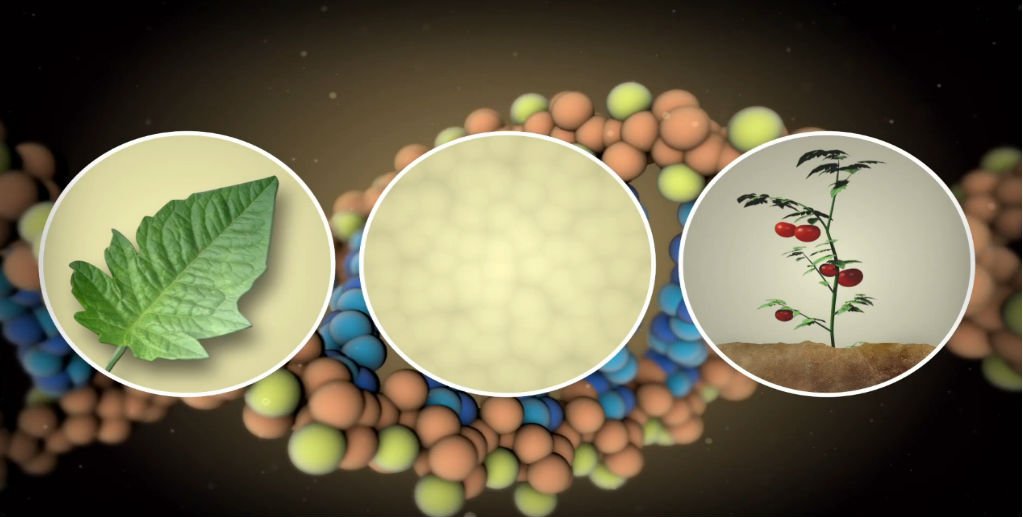Modifying plants’ genes to yield larger fruits and vegetables or tweaking certain genes to make them more resistant is a controversial issue. While some say it tampers with nature and is potentially harmful, others say it’s the only way to feed the world’s growing population. The Israeli company Morflora claims its solution is a hybrid one, as its novel method “vaccinates” plants and seeds against a wide variety of diseases and introduces new traits, but without leading to genetic modifications or passing on the new traits to future generations.
“This patent-pending method, called TraitUP, can be implemented as part of universal commercial seed treatment procedures,” Dotan Poleg, CEO of Morflora tells NoCamels: “This pioneering technology enables seed companies and breeders for the first time to quickly provide protection against threats to crops, and at a later stage, introduce improved traits into seeds.”
Related articles
- Meet The Pirate Bugs That Help Israeli Farmers Keep Their Produce Pest-Free
- Researcher Creates Transsexual Prawns To Get Bigger Crustaceans
TraitUp also has immediate results. “Until today, introduction of genes to a given plant, by breeders relied on classical methods which can take up anytime between three to seven years to develop and express the desired trait in particular plant species, or by genetic engineering which is time and capital consuming,” Poleg says.
He adds: “The TraitUP components and the introduced gene(s) do not integrate into the plant’s genome and as of current knowledge are not heritable. Expression or silencing of genes (meaning we turn a gene ‘on’ or ‘off’, without changing it) occurs within a few days in all herbaceous plants tested, including tomatoes and wheat, and in up to a month as tested in woody trees.”
[youtuber youtube=’http://www.youtube.com/watch?v=tBlNDpXMk34′]
“Flu shot for plants”
Poleg describes the process as a sort-of vaccine for plants: “when you get a flu shot, you’re getting some genetic material that helps you fight off the specific disease, you’re not completely resistant, and you can still pass it on to your children. It’s the same with our technology.”
The “vaccination” helps protect plants from viruses and fungi, both of which are often responsible for huge losses in crop production and quality, and also works to enhance plant genes to produce larger yields.
Sign up for our free weekly newsletter
SubscribeUsing the way viruses work against them
The idea for Morflora came from research sponsored by the Hebrew University of Jerusalem. “We know that in nature, plant viruses have found a way to enter the plants and express their DNA,” Poleg tells NoCamels. The pathway into the plant that enables the production of foreign DNA inspired the scientists.
By following this trail the scientists were able to facilitate the production of positive cells through the same pathway into the plants’ DNA. The goal of the research was to try and find one specific key within a plant’s DNA that could unlock and open the door to any plant. “A scientific breakthrough,” explains Poleg, “no one thought there could be one generic key that would open any plant.”
One key to unlock all doors
So far, thirty different plants have been tested, including wheat and onions, tomatoes, peppers and grapevines.“Perhaps the universal key to deliver different traits into different plants could take the agriculture industry to the next level in an environmentally friendly way,” Poleg tells NoCamels.
He hopes that the capability to add desired traits into plants and seeds for both protection and enhancement purposes, in a scaled-up commercial fashion which takes only a few days, will constitute “a paradigm shift in the seed industry worldwide.”
Photo by Morflora
Related posts

Resilient And Nutritious New Plant-Based Milk Aims To Make A Splash

Chocolate From Cultivated Cocoa Comes Without Environmental Toll

Plastic Fantastic: Startup Takes PVC Back To Its Crude Oil Roots




Facebook comments